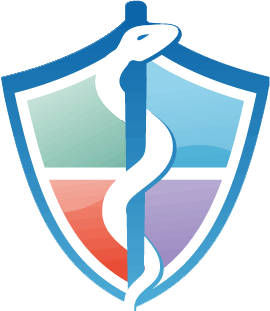 The New England Journal’s recent series1,2,3 brings further light to the complex relationship between physician-patient interactions, advances in medicine, and industry. However, the conversation must extend beyond whether doctors can engage in financial relationships with pharmaceutical companies and maintain objectivity. Promoting this discussion is exactly what the Just Medicine campaign of the American Medical Student Association (AMSA) is doing.
The New England Journal’s recent series1,2,3 brings further light to the complex relationship between physician-patient interactions, advances in medicine, and industry. However, the conversation must extend beyond whether doctors can engage in financial relationships with pharmaceutical companies and maintain objectivity. Promoting this discussion is exactly what the Just Medicine campaign of the American Medical Student Association (AMSA) is doing.
The work that has been done by AMSA to create and publish a scorecard4 is much more than what Dr. Rosenbaum portrayed it to be. Rather than grading schools on “their creation of a ‘pharma-free’ environment”, the Just Medicine Campaign seeks to engage students in assessment of the COI policies at their schools and teaching hospitals in an effort to promote “patient-centered, evidence-based clinical practice, medical education and research.” It is noteworthy that the methodology used in the scorecard is based on the recommendations of an expert task force which reviewed the literature on COI, including the recent recommendations published by the Pew Task Force on Medical Conflicts of Interest5. This task force represented more than medical student interests- it included medical school administrators and faculty, practicing physicians, and patient and community stakeholders.
Resources like the scorecard and the Just Medicine Campaign are not intended to cut-off opportunities for innovation or collaboration, but rather to empower students and educators to critically evaluate what is motivating those collaborations and what values are driving the innovation.
There is no doubt that medical students will be exposed to the pharmaceutical industry over the course of their medical education. In fact, there is evidence6 to support that this exposure will occur within the first years of training, before students even set foot in a hospital. With this in mind, it is essential that students have the opportunity to understand these complicated relationships7,8 from all perspectives. These interactions are a part of professional identity formation–the important process by which students develop their concepts of professionalism9 and advance from trainee to physician.
COI is nuanced and complex. It is far more than the individual interactions, it is woven into the fabric of how our profession interacts in economic environments that prioritize profits over people. Do we not all want to adhere to the highest possible expression of the mission of the “Caring professions”? We cannot simply accept that because there are benefits of collaboration between industry and physicians, all forms of these relationships are beneficial.
Our aim here is not to address Dr. Rosenbaum’s arguments with regard to COI. We are compelled to respond to the assertion that medical student efforts to address the influence of COI on learning are somehow inappropriate. We stand by the work that AMSA has done and acknowledge the need for creating these kinds of spaces in medical education. We applaud the incredible strides that students have made to advance the discussion.
References
- Rosenbaum L. Reconnecting the dots – reinterpreting industry-physician relations. N Eng J Med 2015; 372:1860-1864.
- Rosenbaum L. Understanding bias – the case for careful study. N Engl J Med 2015; 372:1959-1963. Link
- Rosenbaum L. Beyond moral outrage – weighing the trade-offs of COI regulation. N Engl J Med 2015; 372: 2064-2068. Link here.
- AMSA PharmFree Scorecard 2014. http://www.amsascorecard.org, Sterling, VA: American Medical Student Association. 29 May 2015.
- The Pew Charitable Trusts, “Conflict-of-Interest Policies for Academic Medical Centers: Recommendations for Best Practices,” 2013, http://www.pewtrusts.org/en/research-and-analysis/reports/0001/01/01/conflictsofinterest-policies-for-academic-medical-centers
- Kesselheim, Aaron S. “Medical Students’ Exposure to and Attitudes about the Pharmaceutical Industry: A Systematic Review.” PLOS Medicine, (2011)
- Kesselheim, Aaron S., Austed, Kirsten E. “Conflict of Interest Disclosure in Early Education of Medical Students”306(9) (2006): 991-992
- Stern, David T., Papadakis, Maxine. “The Developing Physician–Becoming a Professional” The New England Journal of Medicine. 355 (2006): 1794-1799
- Wald, HS. Professional Identity (Trans)Formation in Medical Education: Reflection, Relationship, Resilience. Acad Med. 2015;90:701–706. First published online April 15, 2015

